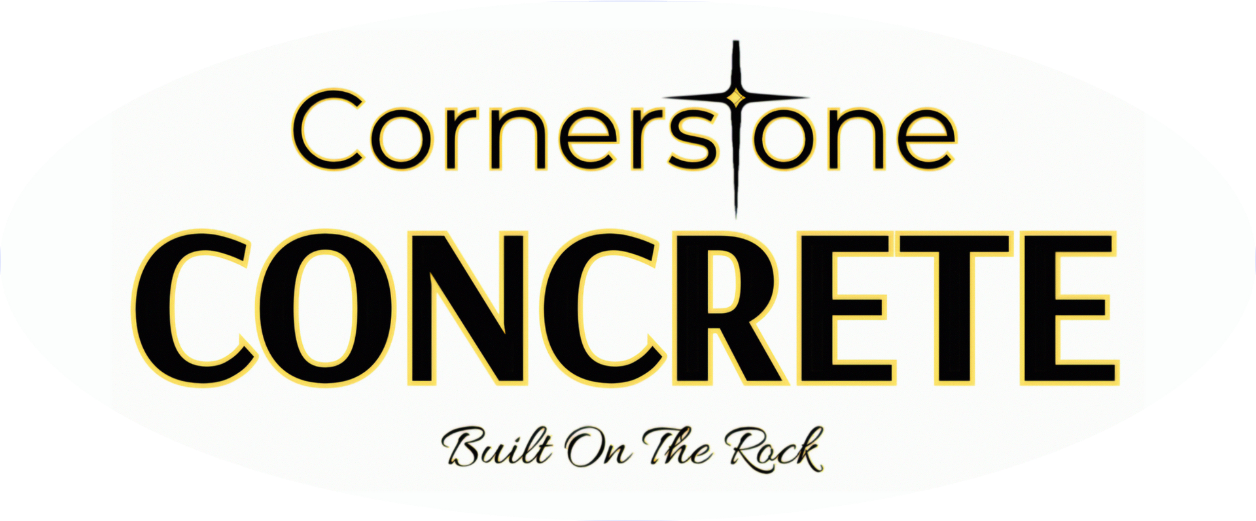FAQs
Cornerstone Concrete
Are concrete and cement the same thing?
Concrete and cement are distinct materials, though they're often confused. Cement is a key ingredient in concrete, much like flour in a cake recipe. When cement is combined with water and other components, it forms a mixture that hardens into concrete. For more detailed information about concrete materials, please don't hesitate to contact our experienced contractors.What is a slump used for?
A slump measures the consistency of concrete mix, specifically its water content. A lower slump indicates a drier mix. Adding excess water beyond the specified amount can compromise the concrete's strength and durability. Our skilled contractors carefully monitor slump to ensure optimal concrete quality.Is it necessary to take the topsoil before pouring concrete?
Removing topsoil is indeed necessary before pouring concrete. Topsoil and other organic materials are too unstable to provide adequate support for concrete slabs. To ensure a high-quality concrete foundation, our contractors always remove all organic material from the subgrade before beginning the concrete placement process.What kind of decorative finishes can I get for concrete?
Concrete offers a wide array of decorative possibilities in terms of shape, pattern, and color. Various specialty materials are available, including concrete forms, stamps, dyes, texture patterns, and stains. These can be applied to both interior and exterior concrete surfaces. Our experienced contractors can help bring your decorative concrete vision to life, no matter how complex.Do I need a concrete contractor for my project?
Professional concrete work requires specialized knowledge and skills that most homeowners don't possess. Concrete contractors are trained in crucial aspects such as site excavation, subgrade preparation, form setting, and concrete placing and finishing. Given the complexity of the work, the weight of the materials, and the critical timing involved in concrete finishing, it's generally advisable for homeowners to engage professional concrete contractors for their projects.How long does a concrete driveway need to cure?
The curing time for a concrete driveway typically ranges from three to seven days, depending on the anticipated load. For specific guidance on when your new driveway can be safely used, we recommend consulting with our concrete specialists who can provide tailored advice based on your particular installation.How often do I need to seal my concrete driveway?
It's generally recommended to apply an initial seal to your concrete driveway and then reapply every 2-3 years, with frequency depending on sun exposure. Sealing helps prevent moisture infiltration, which is crucial in protecting the concrete from damage during freeze-thaw cycles. While sealers are typically effective for a couple of years, our contractors can provide specific recommendations based on your driveway's unique conditions.Why is curing important for concrete?
Proper curing is essential for maintaining optimal moisture content in concrete. Inadequate curing can significantly reduce the concrete's strength. Additionally, correct curing procedures, as implemented by our experienced contractors, help prevent issues such as cracking and shrinkage, ensuring the longevity and durability of your concrete installation.How do I maintain concrete?
Regular maintenance of concrete involves frequent sweeping and occasional hosing. It's important to promptly remove wet leaves to prevent staining. In winter, avoid using salt for ice removal; instead, opt for calcium flake or non-chloride ice melt products. For more detailed maintenance advice tailored to your specific concrete installation, our contractors are always available to assist.Can you pour concrete in the colder months?
While colder temperatures introduce additional challenges to concrete installation, advancements in concrete technology have made year-round service and installation possible. Our contractors are well-versed in cold weather concreting techniques and can advise on the feasibility and best practices for your specific project, regardless of the season.


